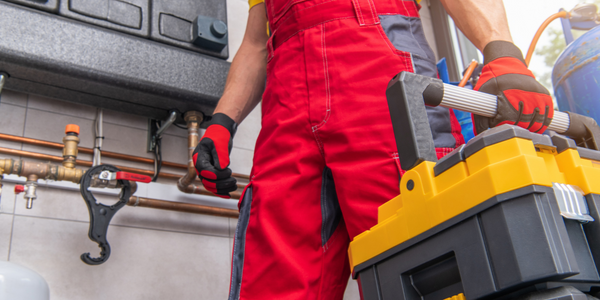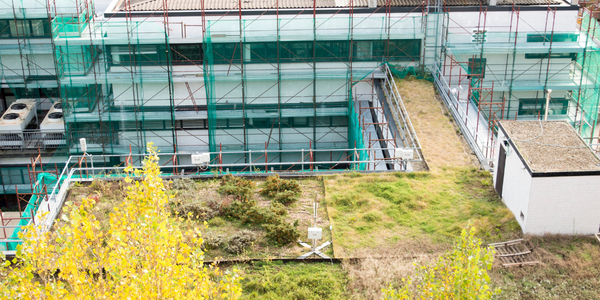Water Utility Management

Water utility management systems monitor and collect data on the infrastructure used to store and deliver water to improve the efficiency of water delivery to customers. Aging infrastructure means that the vast majority of the reticulation network that delivers water to customers have been invisible to the utility company. By placing IoT sensors on water utility infrastructure, the utility operator can collect data on the water flowing between the different points to detect leakages, shortages, quality levels, and consumption levels. Sensors can also assess the condition of infrastructure to enable preventative and Predictive Maintenance.
- Equipment & Machinery
- Mining
- Maintenance
- Quality Assurance
The water quality monitoring market is expected to be valued at USD 4.69 billion by 2025, growing at a CAGR of 4.54% between 2016 and 2025.
Source: Markets and Markets
What is the business value of Water Quality and Leakage Monitoring?
- Extra revenues through cost savings: water management costs can be reduced by real-time monitoring of all operations (including leaks, pressure sensors, and IoT software analytics), consequently resulting in optimized asset utilization, improved operational processes, energy costs savings, minimized human intervention, lower maintenance costs, and lower infrastructure costs
- Productivity increase: IoT allows real-time control for smarter business decisions, reduced operating costs, optimized processes and resources, and service time reduction
- Increased efficiency: water management companies and associations can use real-time operational control to make smarter business decisions and reduce operating costs
- Improved operational process control and monitoring
-Optimized and transparent asset utilization: smart meters, sensors, and connectivity significantly improve tracking of all assets, providing real-time visibility into the supply chain
- Optimized and transparent asset utilization: by using sensors and connectivity, water companies significantly improve tracking of all their assets, gaining real-time visibility into their supply chains
- Real-time knowledge of water usage statistics and analytics for smarter and faster decisions: IoT analytics can eliminate data irregularities and provide a real-time view on unbilled water statistics or any relevant statistic needed in the decision making process.
- Minimal maintenance costs while improving safety and reliability of network operations: being able to the locate all assets, to do real-time monitoring and to control and run preventive maintenance on critical pieces of infrastructure and machinery, water companies significantly reduce maintenance costs and minimize response time.
Utility Operators and Managers: Utility operators and managers oversee day-to-day operations, maintenance activities, and strategic planning for water utilities. They are responsible for ensuring the reliable delivery of clean water to customers, complying with regulations, and optimizing utility performance and efficiency.
Regulatory Agencies: Regulatory agencies set guidelines and standards for water quality, safety, and environmental protection. They oversee water utility operations, enforce compliance with regulations, and issue permits for water extraction, treatment, and discharge. Regulatory compliance is essential for maintaining public health and environmental sustainability.
Customers and Community Members: Customers and community members are stakeholders in water utility management, as they rely on the utility for safe and reliable water supply. They provide feedback on service quality, participate in conservation efforts, and may advocate for policy changes or infrastructure improvements to meet community needs.
Smart Metering and Remote Monitoring: Smart metering systems and remote monitoring technologies enable utilities to collect usage data, identify leaks, and manage customer accounts more efficiently. Automated meter reading, data analytics, and cloud-based platforms enhance operational visibility and customer service capabilities.
Water Treatment Technologies: Advanced water treatment technologies such as membrane filtration, UV disinfection, and desalination play a vital role in ensuring water quality and safety. These technologies remove contaminants, pathogens, and impurities from raw water sources to produce clean, potable water for distribution.
Why is important the real-time data analytics in a water management system?
An IoT based water management system leverages the power of real-time data analytics to:
- Respond and avoid emergencies efficiently
- Recapture revenue
- Lower energy costs
- Reduce emergency repair scenarios
-Detect and manage water loss
- Predict potential pipe failures
- Manage water pressure
- Better allocate maintenance and repair costs
Sensor Networks and IoT Devices: Deployment of sensor networks and IoT devices facilitates real-time monitoring of water quality, flow rates, pressure levels, and infrastructure conditions. These technologies enable utilities to detect leaks, identify pipeline failures, and optimize system performance for efficient water distribution.
GIS and Mapping Software: Geographic Information Systems (GIS) and mapping software are used to visualize, analyze, and manage spatial data related to water infrastructure, distribution networks, and customer locations. GIS tools support asset management, emergency response planning, and decision-making for infrastructure upgrades and expansion projects.
Case Studies.








